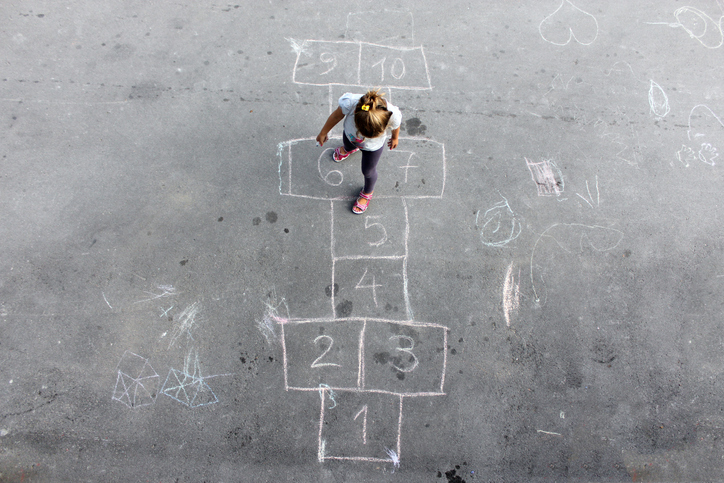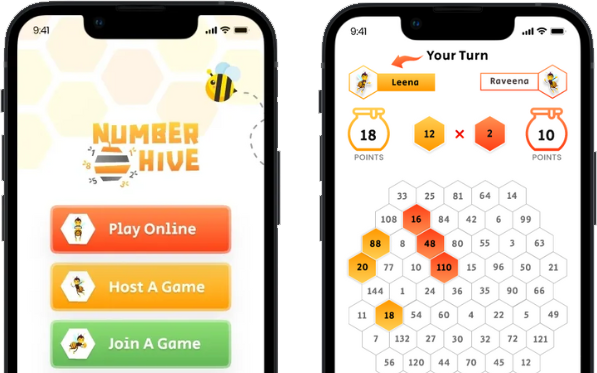
Teachers will tell you that parents ask them all the time for easy math(s) homework activities they can do with their children. Most parents are naturally hesitant when it comes to involving themselves in their child’s mathematics learning, “We were taught differently!” or “I don’t even know what they’re supposed to be doing” seem to be the most common refrains.
So, we thought we’d put together our short list of 8 easy math(s) homework activities for parents. Use them yourself, or share them with the parents of your class.

First up, remember the aim of the math(s) homework game
What you’re really trying to do is to get young ones to learn to think mathematically.
And that is actually much simpler than you might think!
Here’s our 8 easy math homework activities for parents to help young people to think mathematically
What’s cooking?
There is no better place to find a easy math homework ideas than in the kitchen. Cooking a meal from a recipe is a great way to see mathematical concepts come to life. Even improvise and try to create your own recipes! You might discover you have a young chef on your hands! Or perhaps one less meal to cook each week… eventually!
Talk about amounts, ratios, using the scales, temperature and time! Share disaster stories. Ask the question, if the jar says 500g, does that mean there is really 500g in there?
Key math skills: Estimation, converting, measuring, ratios, time… and cleaning!
Meaningful math(s) games
There are all sorts of fun math games that are great for fostering mathematical thinking and skills. There are typical games like Hopscotch, UNO, card games, chess, and other board games. And they all involve numbers, chance and strategy!
Then there are more mathematically focused games like Prime Climb, Number Hive (of course!), Yahtzee and ‘How close to 100’. They’re also fun math(s) games, but the difference with these is they have deliberate mathematical thinking embedded in the strategy you need to play the game. You can find out more about this approach in our game based learning blog.
The world around you
There are always activities focused around what’s going on in the world too. For example, the Coding Cup by Tynker engages the whole family in coding and the World Cup. Take what is already engaging to your young people and leverage that interest. Gaming, sports, technology and music are all saturated in rich mathematical opportunities.
Key math skills: Problem solving, strategy, chance and probability, communication, empathy, subitizing… and sportsmanship!
Gone shopping
The supermarket is full of easy math homework ideas just waiting to be discovered. There are so many opportunities for mathematical thinking while shopping. Write a list with estimated prices alongside. Let the kids drive the smartshop tech. Compare prices of different items of different sizes. Compare the receipt to the shopping list, discuss sale items, coupons, deals etc. Even packing the trolley can be a great game of Tetris!
Spark curiosity with questions like, why is it cheaper to buy in bulk? Who decides which brands are in the best locations?
Key math skills: Financial skills, arithmetic, estimation, comparing, discounts, spatial reasoning… and resisting the impulse buying temptation!
Budget fudging
Involve the kids in family budgeting or just get them budgeting for themselves. Show them the key areas of spending. Great for their thinking now but also will help with their financial management in the future. Ps. This one is pretty handy for you also…
Key math skills: Budgeting, financial skills, delayed gratification, arithmetic… and saving!
Lego learning
Who doesn’t love playing with Lego… Except when bare-foot!
Simply build, follow instructions or be imaginative. All Lego play involves spatial reasoning and manipulation. Don’t miss the opportunity for a subtle discussion around factors and multiples. “This piece is a rectangle. It is 6 long and 2 wide. Are there any other rectangular pieces with the same number of studs on them?”
If you’re like me and have a box of 1000’s of random pieces, get the kids to sort them into useful groups.
Key math skills: Spatial awareness, manipulation, creativity, following instructions, sorting.
Adventure Time
Plan the trip, chart your course on a map, write an inventory… all phases of an adventure require mathematical thinking and reasoning! Whether it’s a lunchtime walk, or a 3-day hike, every adventure has wonderful opportunities if we look for them.
Even if it’s a quick walk. Use your phone (or watch) to track the walk and then analyse it afterwards. How far did you go? At what speed? How high did we climb? Was it faster or slower than last time?
Key math skills: Mapping skills, creativity, writing lists, planning, bearings, scales, collaboration… remembering the matches!
Puzzle mania
Embark on the challenge of a decent sized puzzle. Strategise together on your approach. Who is doing what? How will you sort? Who gets to put in the last piece!? There are even some puzzles out there without a picture to work from and some that are 3D! Challenge yourself and work together to solve your problems!
Key math skills: Planning, collaboration, Geometry, spatial reasoning… finding that missing piece!
Start an argument
In the best sense of the word of course! Get some buy-in from the kids by sparking interest, or provoking controversy in their minds. It might be as simple as, “I think white is the most popular car” which will no doubt lead to some disagreement. What ensues could be a wonderful discussion and casual experiment to decide what’s true (who’s right). It can work the other way too. When your child makes a statement, respectfully disagree. Or ask how they might be able to prove it.
Key math skills: Argue mathematically, critical thinking, data analytics.
While we’ve got your attention, here’s 5 principles to enhance mathematical thinking
While you’re engaging your kids with these easy math homework activities, try to utilise these 5 principles to help enhance mathematical thinking
Make questions open-ended
One of the best ways to promote mathematical thinking is with open ended questions. Rather than saying ‘yes’ or ‘no’ to your child, try these:
- But how did you get that?
- Does it always happen that way?
- Is there another way to do it?
- What would you do differently if you could do it again?
Make things hands on
Kids love when activities are hands on; when you are actually ‘doing’ rather than talking about doing. Instead of discussing recipes, try cooking something. Rather than looking at a map, use it to go exploring.
Make it fun
Try to relax and enjoy the learning. Kids learn best when relaxed and they feel comfortable to take risks. Don’t worry about getting the right answer, value the learning.
Take risks
One of the best things for kids learning is to take risks. What better way to learn this skill than to have it modelled by the adults in their life. So take risks, don’t be afraid to get it wrong or look silly. Getting something wrong is a great way of learning if we have the right mindset. You might learn something too.
Reflect on the activity
Always have a chat after the activity. Discuss what went well, what didn’t, what you learnt and what you would do differently next time. Ensure you both measure ‘success’ in terms of the learning and not purely the ‘performance’.
So there we have it. 8 homework activities and 5 mathematical principles to get you and your young people thinking mathematically, and yes, having fun with math(s).
Sign up to our community for more student engagement tips, information about mathematics anxiety, and lots of other great content.
Join Our Community
Number Hive
How We Help
Resources
© Number Hive. All rights reserved.
Website made by Getmilk.



